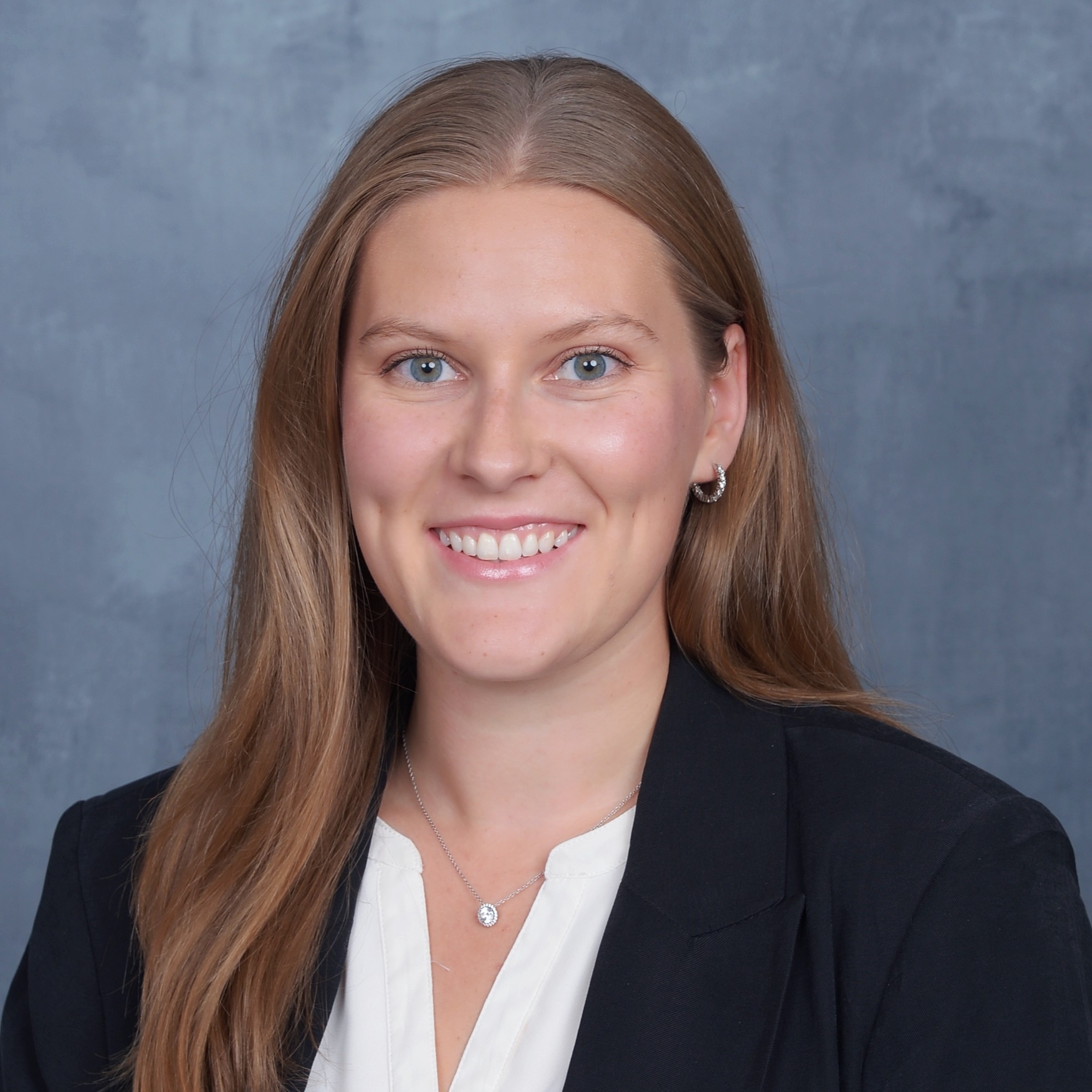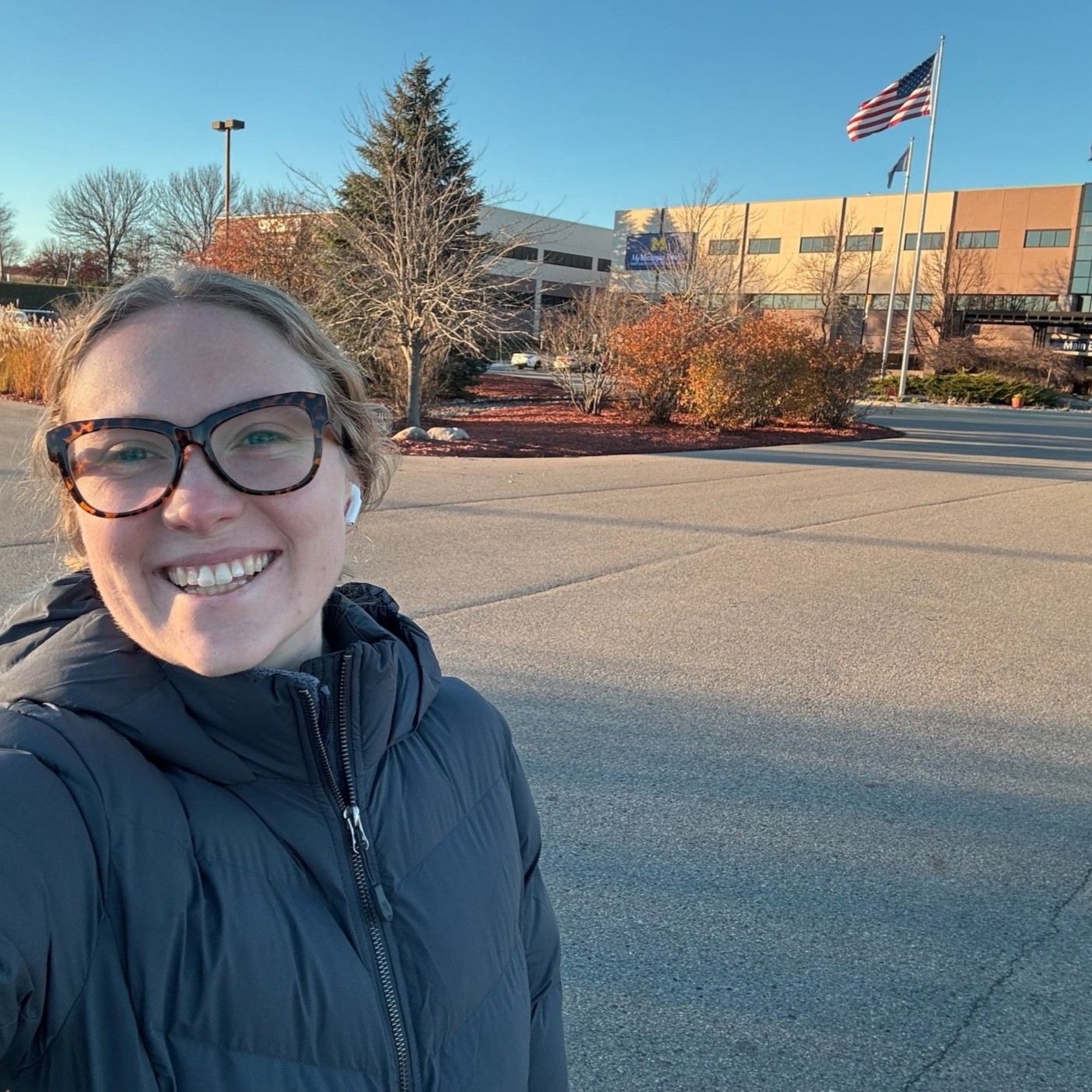A Passion for Rural Health Brings Medical Students to Midland Campus
October 22, 2025

Accessibility, workforce shortages, and socio-economic factors are among the obstacles patients in rural communities face when it comes to health care.
At the MSU College of Human Medicine Midland Regional Campus, third- and fourth-year medical students in the Rural Community Health Program split their clinical training between the community’s full-service hospital and rural education sites. Students who were raised in rural areas in Michigan witnessed firsthand health care challenges.
 “I have always been interested in science, but on a deeper level, I was always more invested in finding and meeting the needs of my hometown,” said third-year student Zach Archbold.
“I have always been interested in science, but on a deeper level, I was always more invested in finding and meeting the needs of my hometown,” said third-year student Zach Archbold.
Growing up in Mills Township, a small rural area north of Midland, Archbold gained perspective on the way distance can be a barrier for certain endeavors. He participated in a high school co-op program at MyMichigan Medical Center where he witnessed medical students in rotation and realized he could attend a school that could place him in his own backyard. After completing his undergraduate degree at Saginaw State Valley University, Archbold joined the College of Human Medicine through the Early Assurance Program.
“It’s a great opportunity to train during medical school in the area you ultimately want to practice. It helps you integrate into the medical system, and it helps you connect with patients in the area,” he said.
 Fourth-year student Hannah McArthur grew up in Gould City, a small town in the eastern Upper Peninsula. Her passion for rural medicine stems from the impact the lack of medical care has had on her friends and family. During her second year as a medical student, McArthur co-founded Michigan Hometown Heroes, a student organization that provides mentorship to high school girls in rural Michigan communities who are interested in medicine.
Fourth-year student Hannah McArthur grew up in Gould City, a small town in the eastern Upper Peninsula. Her passion for rural medicine stems from the impact the lack of medical care has had on her friends and family. During her second year as a medical student, McArthur co-founded Michigan Hometown Heroes, a student organization that provides mentorship to high school girls in rural Michigan communities who are interested in medicine.
“So many of us at the College of Human Medicine come from rural areas and had little to no mentorship from female physicians or medical students. It was exciting to help create something that gives others what I and the other founders of the organization did not have.,” said McArthur.
McArthur hopes to practice primary care in a rural setting after finishing medical school at the Midland campus. “It’s been a great experience...since there is only one residency in the area, I have had a lot of 1:1 time with attendings across all specialties,” she said.
 Volunteering at St. Peter's Free Clinic in Hillsdale fueled Claire Lupini-Gohl's passion for working in rural health.
Volunteering at St. Peter's Free Clinic in Hillsdale fueled Claire Lupini-Gohl's passion for working in rural health.
“I love working in rural health because you are so integrated in the community, treating the same patients that you run into at the grocery store, that you buy eggs from at the farmer's market, that go to school with your children,” said Lupini-Gohl. “It means so much to me to work alongside an entire community and help contribute with the skills that I have.”
Now in her fourth year as a student, she is reflecting on her time in the Rural Community Health Program.
“The hospital in Midland is a great size - it's big enough to have great exposure to a lot of different health conditions and specialties, but small enough to feel really connected to everyone on the health care team,” said Lupini-Gohl. “During one of my most memorable moments working in West Branch, I stayed late to help the general surgeon with an exploratory laparotomy. It lasted for over 5 hours, but the entire time, I was a large part of the surgery. Afterward, the surgeon thanked me for staying later and told me that he couldn't have done it without me.”
Though Archbold’s training in Midland is just beginning, he’s already experienced memorable moments.
“Walking up the stairs beside the cardinal elevators, the same ones I used to climb as a high school co-op...the memories washed over me and it reminded me how long I have been working towards this goal, and how good it feels to be home,” he said. “And not only just home, but home with more training, and more capacity to help in the ways my community needs most.”
By Claudia Price

